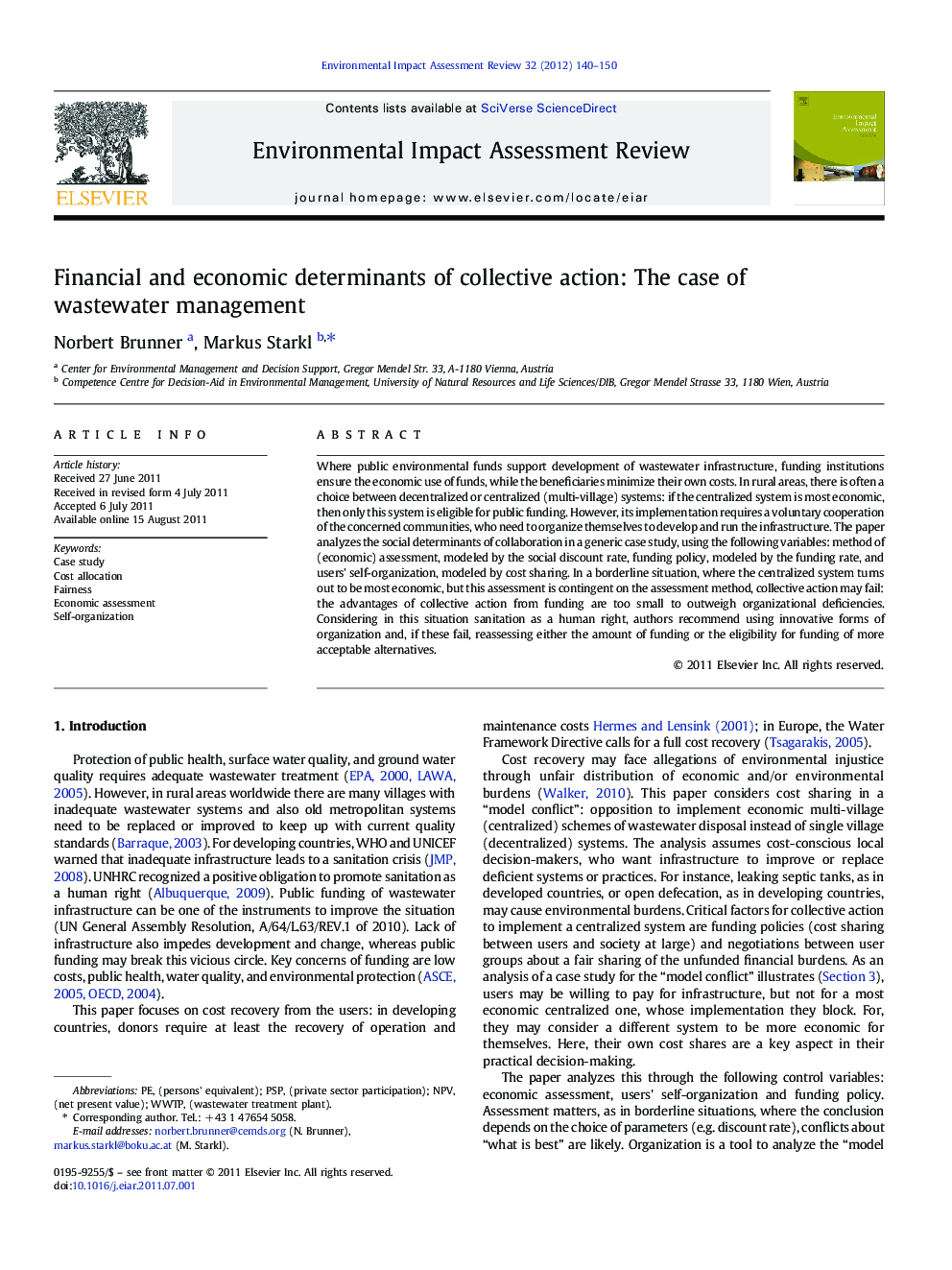| Article ID | Journal | Published Year | Pages | File Type |
|---|---|---|---|---|
| 1052948 | Environmental Impact Assessment Review | 2012 | 11 Pages |
Where public environmental funds support development of wastewater infrastructure, funding institutions ensure the economic use of funds, while the beneficiaries minimize their own costs. In rural areas, there is often a choice between decentralized or centralized (multi-village) systems: if the centralized system is most economic, then only this system is eligible for public funding. However, its implementation requires a voluntary cooperation of the concerned communities, who need to organize themselves to develop and run the infrastructure. The paper analyzes the social determinants of collaboration in a generic case study, using the following variables: method of (economic) assessment, modeled by the social discount rate, funding policy, modeled by the funding rate, and users' self-organization, modeled by cost sharing. In a borderline situation, where the centralized system turns out to be most economic, but this assessment is contingent on the assessment method, collective action may fail: the advantages of collective action from funding are too small to outweigh organizational deficiencies. Considering in this situation sanitation as a human right, authors recommend using innovative forms of organization and, if these fail, reassessing either the amount of funding or the eligibility for funding of more acceptable alternatives.
► A generic case study models collective action and funding in wastewater management. ► Determinants of success: economic assessment, funding policy and self-organization. ► Success indicators: conflict rate, funds needed to make cost shares fair. ► Method for analyzing centralized vs. decentralized disputes. ► If collective action has less benefits, innovative cost sharing may ensure success.
